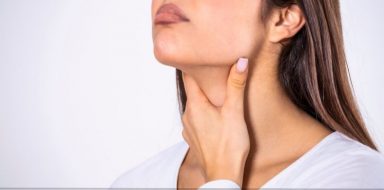What Vitamin Deficiency Causes You to Feel Cold?
It’s normal to feel cold sometimes if you live in a cold climate or have poor insulation in your home, but some people always seem to need extra layers. If you are one of those people who feels cold constantly, there may be an underlying medical issue at play, such as a vitamin deficiency. But what vitamin deficiency causes you to feel cold? Let’s find out.
Some vitamin deficiencies that can cause you to feel cold are vitamin B12 or iron. This post is here to tell you all you need to know about these vitamin deficiencies and how you can modify or supplement your diet to get the nutrients you need to stay warm and toasty all year long.
What is a Vitamin Deficiency?
Vitamin deficiencies occur when your body is not receiving all the nutrients it needs from food. Vitamins are a different class of nutrients from things like starches or proteins, in that your body does not need very high volumes of them. Eating a balanced diet is usually enough to get the vitamins you need, but it is easy for some vitamins to slip through the cracks.
Vitamin deficiencies can cause a variety of symptoms depending on the specific vitamin lacking. These can include brittle hair and nails, mouth sores, bleeding gums, hair loss, and feeling cold.
Feeling cold tends to be a symptom of a specific type of vitamin deficiency called anemia. Anemia affects about 30% of people, and it occurs when your body cannot make enough red blood cells to get oxygen to different areas of your body.
In addition to feeling cold, other symptoms of anemia include:
- Fatigue
- Weakness
- Numbness, especially in the fingers and toes
- Irregular heartbeat
- Dizziness or lightheadedness
- Headaches
- Chest pain
- Shortness of breath
- Pale or yellowish skin
What Causes Anemia?
Anemia is most commonly caused by a deficiency in iron. Iron is used by your body to make hemoglobin, the protein in red blood cells that carries oxygen. A lack of hemoglobin means your tissues do not get the oxygen you need, producing the symptoms of anemia.
However, iron is not the only vitamin at play in anemia. Vitamin B12 deficiency can also produce the same symptoms. This is because the body needs vitamin B12 to maintain healthy blood cells. Without vitamin B12, red blood cells can swell out of control and become too large, causing a type of anemia called megaloblastic anemia. Additionally, a deficiency of folic acid (also called folate or vitamin B9) can cause anemia because this nutrient works together with vitamin B12.
How Can I Stop Myself From Feeling Cold?
In the short term, putting on extra layers, taking a hot shower, or turning on the heat may help you to feel better. But these steps will only treat the symptoms of vitamin deficiency, not the underlying causes. You may also run up a nasty heating bill if you blast the heat every time you feel cold!
The best way to stop yourself from feeling cold from anemia is to correct the nutritional imbalance. If you feel that you may be anemic, do not be afraid to talk to your doctor. They will help you determine if anemia is the cause of your symptoms and, if it is, they will help determine which type you are suffering from.
Do you feel bloated, gassy or nauseous after you eat or drink a dairy product? If you do, you may be experiencing some common lactose intolerance symptoms.
While a doctor can provide the best advice for you, there are some steps you can take to correct the nutritional imbalances that cause anemia. First, vegetarians and vegans are somewhat more susceptible to anemia because an easy source of iron in the diet is red meat. However, there are many foods that contain iron, so you need not compromise your diet if you are vegetarian or vegan.
Foods other than red meat that contain a lot of iron include:
- Seafood
- Beans and seeds
- Dark, leafy vegetables, like spinach
- Dried fruit
- Iron-fortified cereals, bread, or pasta
- Peas
If you have megaloblastic anemia caused by vitamin B12, the foods you should eat may be slightly different (though there is some overlap). Vitamin B12 may be a bit more difficult for vegans because it is most abundant in animal products.
Some foods that contain vitamin B12 include:
- Organ meats, like liver or kidney
- Clams
- Sardines
- Red meat
- Tuna
- Dairy
- Fish
- Eggs
- Fortified foods like cereals, bread, pasta, or yeast
Do I Need to Take Supplements?
If dietary changes are not helping your symptoms, you may need to take supplements. While dietary supplements are not the be-all-end-all of health (despite what their advertisements would have you believe), they can help. This is especially true if you are struggling to get nutrients you need as a consequence of dietary choices, like being vegetarian or vegan.
Supplements for vitamin B12, iron, and folic acid are available over the counter, but you should still talk to your doctor about taking them. Contrary to intuition, it is possible to take too much of certain vitamins. Too much iron can cause gastrointestinal problems, and too much vitamin B12 can cause skin issues, like acne or rosacea (though this is quite rare).
The bad news about anemia is that for many people it comes and goes throughout the years. However, some people never experience symptoms again once they correct the vitamin deficiencies causing it. If you feel that you are feeling cold more often than normal, talk to your doctor. They can help diagnose your issue and get you on the road to feeling warm and comfortable again.







